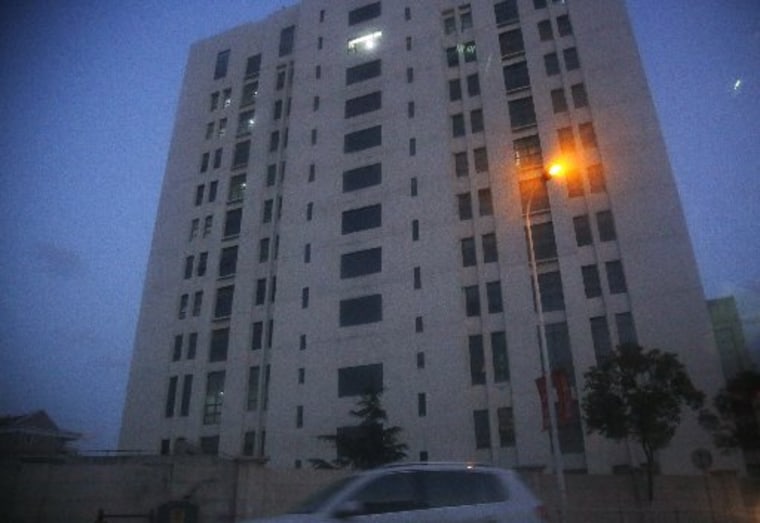A new report detailed in the The New York Times Monday points to a twelve-story building occupied by China's People's Liberation Army in Shanghai as the source of a series of cyber-attacks launched on U.S. business and infrastructure in recent years.
The link between China's military arm and the country's cyber hacking group known as "Comment Crew," a perpetrator of attacks against Coca-Cola and the computer security firm RSA as well as companies in control of U.S. power grids, oil and water supply, poses significant challenges to an already-strained relationship between the U.S. and China.
"Almost no sector was spared," said Grady Summers, a vice president at the American computer security form Mandiant, which authored the 60-page report, on Andrea Mitchell Reports Tuesday. "We saw everything from high tech manufacturing to transportation and defense. But a lot of the sectors that were targeted were part of the nation's critical infrastructure. And that definitely gives us concern."
The report comes amid a spate of hacks on high-profile American corporations, with Facebook reporting Friday that employee laptops had been compromised, and Apple identifying similar malware infection on its internal computers Tuesday. Reuters reported a connection between the attacks on Facebook and Apple as well as Twitter, which experienced breaches of about a quarter-million accounts on February 1, though without proof the attacks originated in China.
President Obama warned against a "rapidly growing threat from cyber-attacks" in his State of the Union Address last Tuesday.
"We know hackers steal people’s identities and infiltrate private e-mail. We know foreign countries and companies swipe our corporate secrets. Now our enemies are also seeking the ability to sabotage our power grid, our financial institutions, and our air traffic control systems. We cannot look back years from now and wonder why we did nothing in the face of real threats to our security and our economy," Obama said.
The president highlighted an executive order signed that same day which allows the government to share information about known hacking groups with U.S. internet providers and companies that support the nation's infrastructure.
At Tuesday's briefing, White House Press Secretary Jay Carney declined to comment specifically on the Mandiant report highlighted in The New York Times, saying only, "we're aware of its contents, but I am not going to talk about intelligence assessments that we make or may be making." A confrontation between Washington and Beijing over cyber espionage could threaten an already delicate relationship at a moment when other diplomatic crises are occupying the front burners.
The U.S. along with the United Nations Security Council is urging China to pressure its ally North Korea to slow the nation's nuclear ambitions, after a nuclear test launched last week signaled a fervent return to the program by new leader Kim Jong-un. On the equally pressing issue of Iran, China's veto power can block the U.N. from handing down tougher sanctions in order to quell Tehran's nuclear ambitions. And as the holder of $1.15 trillion of U.S. government debt--more than any other country--China has a deep stake in the U.S. economy.
Summers pointed to a potential positive effect of China's role as a U.S. creditor. "We are fortunate that China does hold a lot of our debt. They're a large foreign investor. So, ultimately, I don't think their goal is to damage the U.S. economy," Summers told Andrea Mitchell Tuesday. "We're hoping the report that we put out this morning, though, does provide some leverage," he said. "We've said some things that it might be hard for the intelligence community or the administration to say. We've put it out there in plain sight and we hope that they can run with that."
Former U.S. Ambassador Nick Burns told Mitchell he expects that the cyber threat revealed in the Mandiant report is "very high up" on the U.S.-China agenda for new Secretary of State John Kerry and President Obama. "By any definition, this relationship with China is the most important that we have with any country in the world because of China's size, its power, the degree of economic interaction between us. It's very damaging for the Chinese," Burns said. "It undercuts whatever trust there is--and it wasn't high--between the two governments. It has the potential of turning the American public, the American Congress and certainly the business community against China to a much greater extent than in the past."
"So the Chinese, already in a deficit with world public opinion, I think, have just dug the hole a little bit deeper," Burns said.
